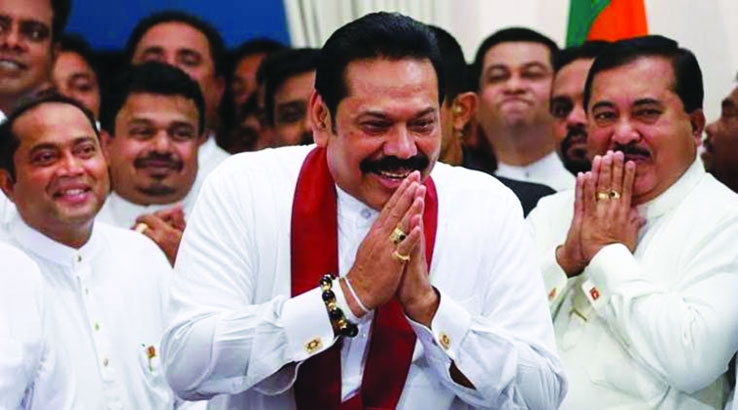With the pro-China Rajapaksa clan in full control, India has to work on strategic engagement and economic alliances
The Sri Lankans have chosen stability over liberalism, performance over democracy in returning the Rajapaksa clan to power with a massive mandate in the nation’s parliamentary elections. President Gotabaya Rajapaksa’s ruling party, the Sri Lanka People’s Party (SLPP), won 145 of the 150 seats, that would now allow him to amend the Constitution, expand his executive powers and ensure that his elder brother, Mahinda, continues as Prime Minister. In short, the dynastic hold on Sri Lanka’s politics is now absolute. And the brothers could overturn any reformatory attempts that have been made by previous Governments to consolidate their position. Sri Lankans, much like other nations around the world, including India, have voted for nationalist pride and muscular leadership in tough times. The Government’s smart COVID-19 management has scored big with the voter, the island nation reporting just 11 deaths and managing the elections without any cluster outbreaks during the polling process. The Rajapaksa brothers are seen as strongmen and deliverers and seem to have consolidated their hold among the Sinhalese Buddhist majority in the aftermath of the Easter bombings, which showed how scattered IS modules were choosing virgin targets. And no matter how militarist Gotabaya may seem, the Sinhalese trust him to tackle terrorism as he cleaned up the Tamil movement ruthlessly, an operation that had earned him the moniker of the “terminator.” For India, though, the return of Mahinda Rajapaksa is worrying as he has a hardliner approach to Tamils and has welcomed Chinese strategic interests and investment at our expense. In the past, he accused New Delhi of intervening in the internal affairs of Sri Lanka, propping up his own protege Maithripala Sirisena against him and ensuring he lost the elections. Sirisena’s SLFP and ally UNP, whose leader Ranil Wickremesinghe became Prime Minister, formed a coalition Government which was pro-India. The Indian establishment was also too overt rather than being covert about its interventions. So a hurt Mahinda never settled down, his party scoring on local elections till he forced a coup, subduing Sirisena, getting him to sack Wickremesinghe and becoming Prime Minister for 51 days. Gotabaya took charge of Defence and Security, kept the Tamil-majority areas under strict military vigil and put Indian diplomats under surveillance. It is this distrust that needs to be healed now for geo-strategic reasons if we don’t want China to run ahead.
Little wonder then that Prime Minister Narendra Modi was one of the first dignitaries to wish Mahinda, with whom he has been in touch over regional COVID-19 management. India’s diplomacy in the neighbourhood has to factor in the pragmatism by lesser neighbours, who have successfully played on its anxieties with China and are negotiating the best of both worlds given the competitive muscle-flexing by two Asian majors. Bangladesh, Nepal and Sri Lanka are all happily walking the trajectory of “trade ties” with China and “historical linkage” with India to buttonhole both nations into giving concessions. Mahinda, too, seized the moment by calling India a “friend” with whom he had a “long-standing cooperation.” The Modi Government is pushing proactive participation over historical assumptions in its Lanka policy. Yet, the Chinese are way ahead in Lanka. They have a 99-year lease on the Hambantota port after Sri Lanka’s failure to repay loans and are using it to enhance their military arc in the Indian Ocean region all the way to east Africa. The Chinese have even created an island off Colombo, a new financial hotspot and a key conduit to East Africa, besides controlling the island nation’s infrastructure sector, hospitality and supply chains. And while we may have halted Huawei’s 5G technology, Sri Lanka has no security fears about the new-generation mobile telephony technology. India has, therefore, to do a very tightrope act with Sri Lanka if it wants to protect its strategic interests amid a Chinese swamp. That, too, without compromising too much on Tamil interests. We need to work on investment and project partnerships, encourage soft diplomacy via people-to-people contacts and strengthen an institution like BIMSTEC to ensure continuous communication. And we must take care to not appear exploitative or patronising.
























